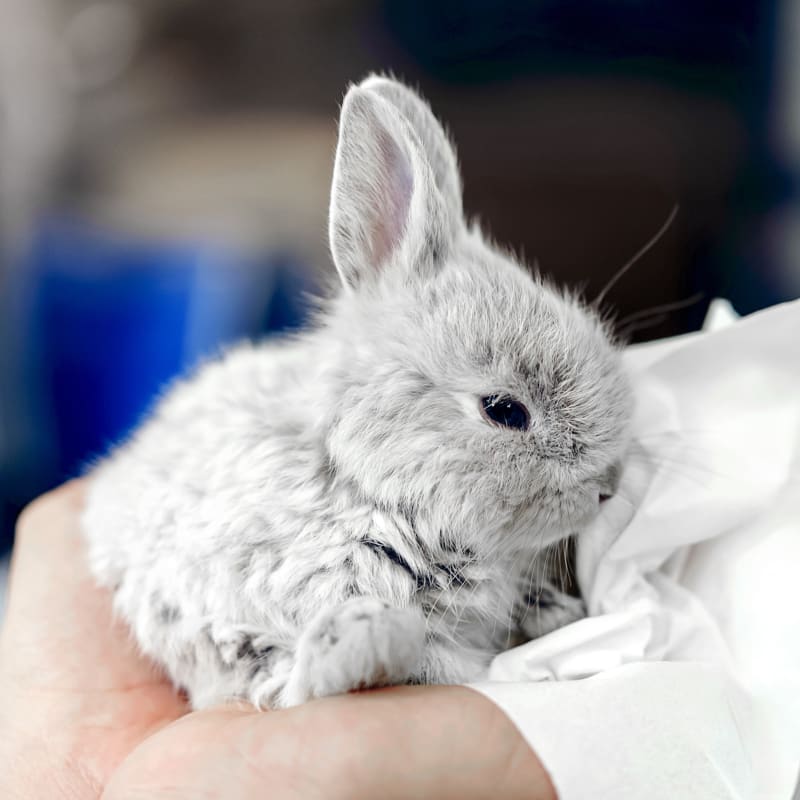At Carrier Animal Hospital in Grand Prairie, our vets treat exotic pets including birds, reptiles and small mammals such as rabbits, hamsters and guinea pigs.

Care for Small Mammals, Reptiles & Birds
We know that caring for your exotic pet requires special knowledge and experience. Rest assured that we strive to treat our unique patients with the same level of care as we do with dogs and cats.
Our team is dedicated to providing birds, reptiles and small mammals with proper care so they can live long and healthy lives. We are also here for you whenever your pets are not feeling well.
Our staff of skilled professionals in Grand Prairie can provide routine wellness exams, preventive care, including spays and neuters for certain species, and exams for medical or behavioral concerns.
FAQs for Exotic Pet Care
At Carrier Animal Hospital, we provide routine wellness and preventive care services for your bird or other exotic pet. Exotic pets can also be seen for medical or behavioral concerns.
- What is the avian species?
The avian species involves any and all things in relation to birds. These small exotic animals have become popular pets for people seeking intelligent, affectionate companions with personality to spare.
Many birds are prey species in the wild and may hide signs of illness as a defense mechanism against predators, making consistent, qualified preventive veterinary care critical to their health and well-being.
- What should I do if my bird is sick?
If your bird becomes sick, there are a number of things you can do to help them regain their health, including making sure they are eating and drinking properly.
Separate sick birds from other pets in your house and ensure they stay warm. We also recommend putting birds that have fallen ill on cage rest while they recover to prevent stress, and to give them about 12 hours of light and 12 hours of darkness every day.
Take your bird to your veterinarian for an exam if your avian friend is displaying signs of illness. Seriously ill birds will need to be hospitalized, while those that are only mildly sick or are still eating and drinking may be treated at home by their owners, with a veterinarian's direction.
- What characteristics do reptiles and amphibians have?
Reptiles and amphibians appeal to many people who would like something different than the traditional furry pet. They require unique environments and preventive care to thrive.
Turtles, snakes, lizards, iguanas, tortoises and more fall under the reptile classification. These air-breathing vertebrates are covered in a specialized skin made of hard scales, bony plates or some combination of the two.
Amphibians include frogs, toads, salamanders and newts, and worm-like caecilians. These cold-blooded vertebrates lack scales. They spend part of their lives in water and part on land.
Your veterinarian can tell you about these animals' special dietary and housing needs.
- What should I consider before adopting an exotic pet?
Exotic pets have specific care and behavior requirements. The first thing to consider is whether you are able to provide the proper living environment for the type of pet you are interested in.
The most common cause of illness in exotic pets is inappropriate living arrangements and diet. We can provide you with information on the proper living environment and diet of some of the species we treat. Just call and ask for a care sheet!
In some states, there are local laws and regulations regarding ownership of exotic animals. You should check these before choosing a new pet..
- What can I expect at my exotic pet's veterinary appointment?
When you bring your exotic pet in for an appointment, your veterinarian will perform a thorough routine exam to assess your pet’s general health. This also helps your veterinarian obtain a thorough history of your pet’s environmental conditions and diet.
Your veterinarian will make recommendations on changes to the enclosure, appropriate preventive care, and appropriate screening tests. They will also answer any questions you may have about at-home care.
If your pet is sick, your veterinarian will be able to give you appropriate diagnostic tests to inform treatment options.
Exotics We Treat
At Carrier Animal Hospital, we provide dedicated veterinary care for many types of exotic pets, including:
Birds
Conures, cockatiels, budgies, quakers, and others.
Exotic Mammals
Ferrets, rabbits, guinea pigs, chinchillas, hedgehogs, and others.
Reptiles & Amphibians
Lizards, turtles, snakes, and others.
